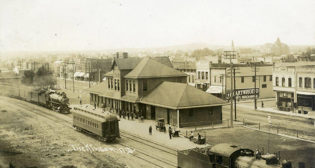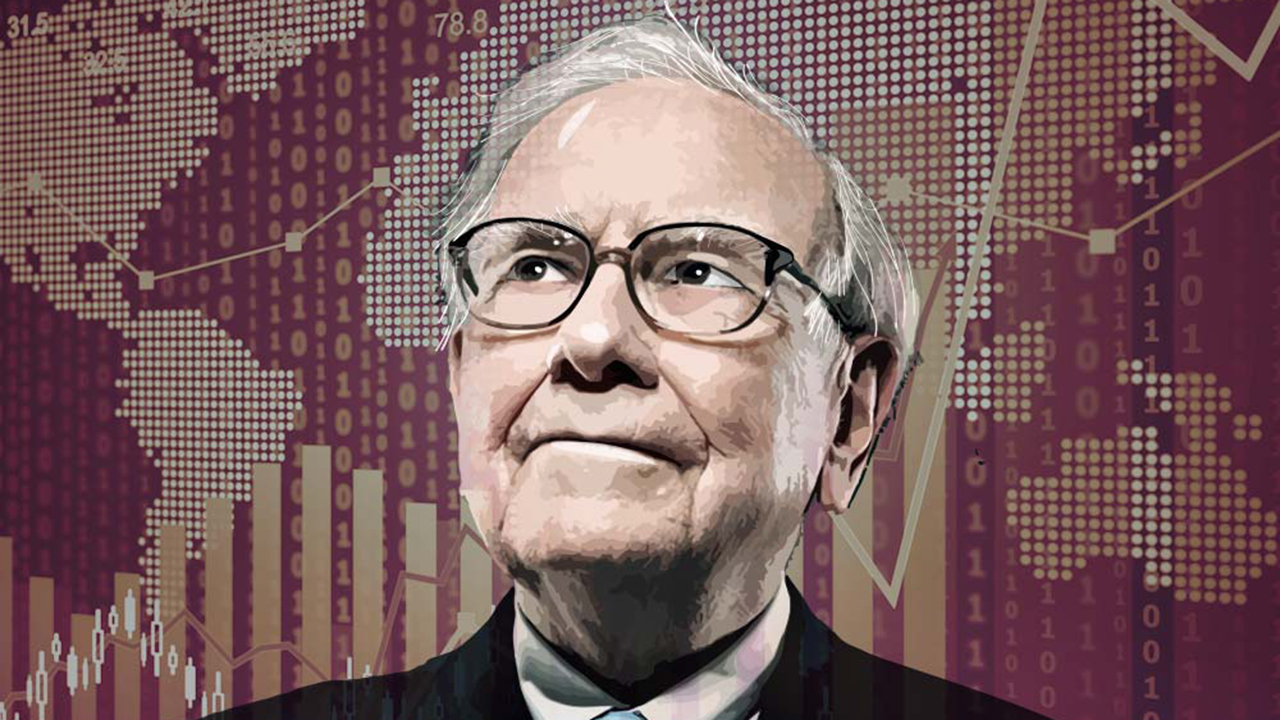
NS and Ancora: What is the Oracle’s View?
Written by Dr. William Huneke, Consulting Economist
Warren Buffett. Fletcher Financial Group illustration.
I have been interested reading the commentary on Ancora’s attempted takeover of Norfolk Southern (NS). I do not have a dog in this fight and am just a spectator sitting in the balcony enjoying the circus and its array of actors and commentators.
The news broke Feb. 1 that Ancora, an investment firm, had a $1 billion stake in Norfolk Southern and was seeking to oust Alan Shaw, NS’s CEO. Ancora asserted that it aimed to boost NS stock, which “was down as of Wednesday’s close by about one-quarter from a high two years ago as revenue and profit fell. Norfolk Southern was the worst-performing stock last year of all the so-called Class I railroads…” (Wall Street Journal, Feb. 1, “Norfolk Southern CEO Faces Activists Calling for His Ouster”). Former Ohio Governor John Kasich—who in 1995 was a leader of the congressional effort to eliminate the Interstate Commerce Commission—even signed on to be one of Ancora’s slate of proposed directors.
NS responded with its own slate and stated that it continues its “board refreshment” with nominations of two new directors, reiterated its “focus on safety and service while working to drive significant margin improvement through balanced strategy under CEO Alan H. Shaw,” and rejected Ancora’s eight board nominees and “short-sighted plan that jeopardizes sustainable shareholder value creation.” NS’s slate has former Senator Heidi Heitkamp and former CN CEO Claude Mongeau. (It is curious that, when as a U.S. Senator from North Dakota, Heitkamp introduced legislation mandating a minimum of two crew members on every freight train.) What a wonderful drama is unfolding.
The affray has drawn commentary from both STB Chair Marty Oberman and STB Member Robert Primus reminding stakeholders and observers that the railroad industry suffered service failures during the COVID pandemic recovery. They blame railroad management aggressively instituting “precision scheduled” railroad practices that reduced crews and equipment so that railroads could not run enough trains to keep up with freight demand coming out of the pandemic. That was not a pretty picture.
In their view, Alan Shaw was bringing back crews and equipment so that service was improving. They adamantly opposed Ancora’s effort as a return to draconian cuts that threatened to lead to service issues. I should note that STB has no statutory authority to approve or deny this financial transaction other than in the court of public opinion.
Lining up with Oberman and Primus was a commentary by my good friend Mark Burton. Burton laments that activist investors like Ancora have short-term horizons and may not appreciate the implicit historical agreement that has been in place between railroads and the larger community. He points out that economic profits, meaning profits bigger than average, will draw in more investment, but profits less than average or even losses will cause “disinvestment, business exit and market contraction … and weaker firms that do not meet this standard die ugly but often colorful deaths.”
After reading Burton’s piece, I happened upon BNSF’s recent earnings report with observations by “The Oracle of Omaha,” Warren Buffett, whose Berkshire Hathaway bought BNSF more than 15 years ago. I would have thought he was pleased with his investment. Maybe not.
He wrote: “BNSF must annually spend more than its depreciation charge to simply maintain its present level of business. This reality is bad for owners, whatever the industry in which they have invested, but it is particularly disadvantageous in capital-intensive industries. At BNSF, the outlays in excess of GAAP depreciation charges since our purchase 14 years ago have totaled a staggering $22 billion, or more than $1.5 billion annually. Ouch! That sort of gap means BNSF dividends paid to Berkshire, its owner, will regularly fall considerably short of BNSF’s reported earnings unless we regularly increase the railroad’s debt. And that we do not intend to do.”
When Buffett writes “Ouch!” I can feel it. He is not an activist investor with a short-term time horizon. He is telling us that railroading is a tough business and he notes that BNSF’s asset book value is $70 billion, but its replacement value is probably more than $500 billion. He also reminds us that railroading is a capital-intensive industry. To attract adequate capital, railroads have keep paying dividends to their investors.
So, as you follow the NS-Ancora saga, remember that whoever wins will have billions at stake, and will keep having to attract billions to stay in the business. And ask yourself if an investor with Buffett’s long-term horizon might buy into NS and let management run it the way Buffett has let BNSF be operated. That is a question all stakeholders, including STB, should ponder.

Dr. William Huneke is the former Director and Chief Economist at the Surface Transportation Board. He has more than 40 years’ experience in economics, transportation, railroad regulatory policy, management consulting, business analysis and teaching in the commercial and government sectors. He provides economic consulting on regulatory and arbitration matters. At the STB, Dr. Huneke led the Board’s analytical work and oversaw the collection of economic and financial data. Since leaving the STB, he has provided economic and litigation support to Class I railroads and other private-sector clients. He worked with the OECD (Organisation for Economic Co-operation and Development) to advise the Mexican government on its future rail regulatory policy. He represented the United States at an OECD conference on railroad industry structure. His private-sector experience included executive and management positions at UUNET, Freddie Mac and the Association of American Railroads. Dr. Huneke has taught graduate business courses at the University of Maryland, Robert H. Smith School of Business. He holds a doctorate from the University of Virginia and a B.A. from Swarthmore College.



